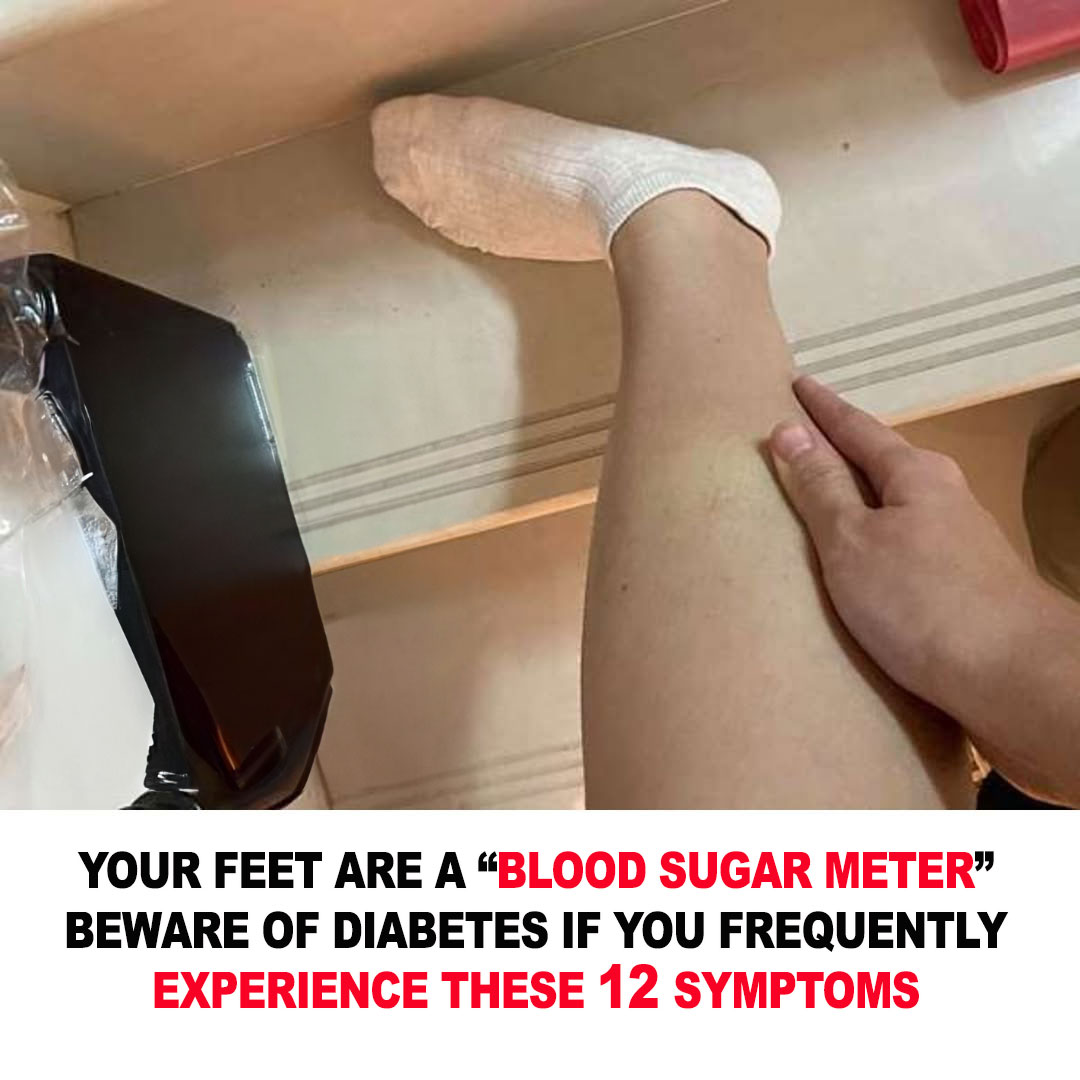
Every cell in your body requires energy to function properly, and that energy primarily comes from glucose, also known as blood sugar. Glucose plays a crucial role in supporting digestion, heart health, brain function, vision, and skin health.
Throughout the day, blood sugar levels naturally fluctuate, but when they drop below 70 mg/dL, a condition known as hypoglycemia occurs. Recognizing the signs of low blood sugar can help prevent complications. Here are 12 key symptoms to watch for.
1. Sweating Unexpectedly
If you start sweating despite cool temperatures, it could be a sign of low blood sugar. According to the University of Michigan Health, hypoglycemia can trigger excessive sweating, especially in people with diabetes, though it can happen to anyone as the body releases adrenaline in response to glucose drops.
2. Irritability and Mood Swings
Feeling irritable or “hangry” before a meal? Low blood sugar prompts the release of stress hormones like cortisol and adrenaline, leading to mood swings. While hunger itself doesn’t always mean low glucose levels, frequent irritability before eating could be a sign.
3. Hunger Pangs
Since glucose fuels your body, a sudden drop in blood sugar can make you feel extremely hungry. Eating nutrient-rich foods like whole grains and non-starchy vegetables helps stabilize blood sugar, unlike sugary drinks and starchy carbs, which cause temporary spikes and crashes.

4. Nightmares and Restless Sleep
Hypoglycemia can disrupt sleep, causing nightmares, night sweats, and frequent waking. Many people with diabetes report experiencing intense dreams that wake them up. If this happens regularly, adjusting your evening diet or exercise routine might help.
5. Difficulty Focusing
Low blood sugar can starve your brain of energy, making it harder to concentrate or complete tasks. This is especially problematic for children, as skipping meals can significantly impact their attention span and learning abilities.
6. Dizziness and Lightheadedness
Feeling dizzy after missing a meal? Low glucose levels activate the sympathetic nervous system, releasing hormones that cause dizziness, weakness, and hunger. Staying hydrated can help, but if dizziness persists despite eating, other medical causes should be considered.
7. Shakiness and Tremors
A sudden drop in blood sugar triggers an adrenaline release, which can cause shaky hands and trembling. If shakiness continues after eating, it may indicate idiopathic postprandial syndrome (IPS), a condition that mimics hypoglycemia without actually involving low glucose levels.

8. Blurred or Distorted Vision
If your vision becomes blurry or you see black spots, low blood sugar could be the culprit. People with diabetes are especially prone to vision issues related to glucose fluctuations. However, persistently blurry vision should always be checked by a doctor.
9. Slurred Speech
Severely low blood sugar (below 40 mg/dL) can cause slurred speech and difficulty processing words. Other symptoms at this stage may include muscle twitches, unsteady walking, and emotional instability. Recognizing early signs of hypoglycemia can help prevent severe reactions.
10. Disrupted Sleep Patterns
Chronic insomnia could be linked to nighttime hypoglycemia. Symptoms like night sweats, restlessness, and waking up feeling unrefreshed are common. Managing blood sugar levels through a balanced diet can support better sleep and overall health.

11. Seizures and Coma
Severe hypoglycemia can result in seizures, fainting, or even brain damage if not treated promptly. In people with diabetes, extreme blood sugar drops may lead to a diabetic coma. Early warning signs usually appear before a coma, so addressing them quickly is essential.
12. Heart Palpitations
A rapid or irregular heartbeat can be another indicator of low blood sugar. When glucose drops, the body releases adrenaline, triggering a fight-or-flight response. In rare cases, hypoglycemia-related heart issues can lead to serious complications, particularly for those with type 1 diabetes.
Being aware of these symptoms can help you take timely action to prevent complications from hypoglycemia. If you frequently experience these signs, consider speaking with a healthcare professional to manage your blood sugar levels effectively.

